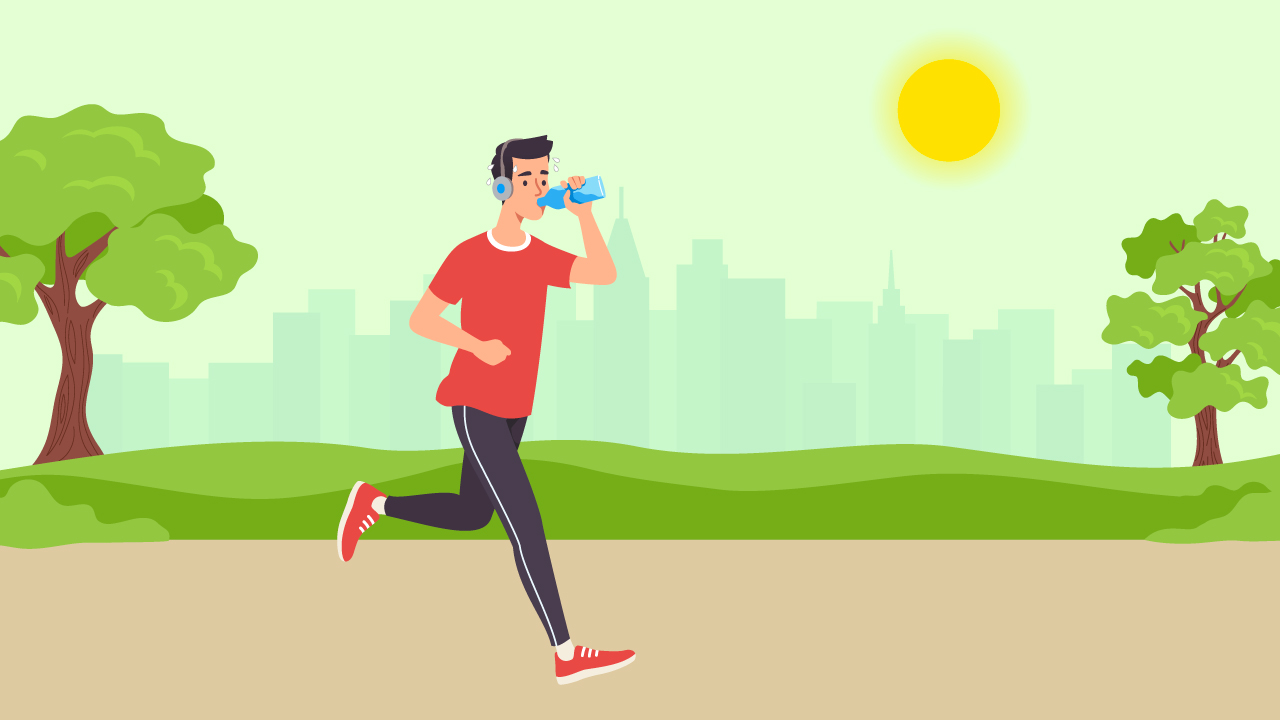
Questions About Diabetes — Answered!

The quest of creating better awareness about diabetes remains one of the pillars in stopping its march. So here, we share with you answers to some of the most frequently asked questions (FAQs) about diabetes. These answers aim to bust some myths around diet and shed light on common misunderstandings about the condition.
FAQs on diabetes
1. Can anyone or everyone get diabetes?
Yes, anyone can develop insulin resistance, which can raise blood glucose levels and cause diabetes. While diabetes is common among individuals who are overweight and obese, healthy individuals can also get the disease. Stress is one of the variables that causes diabetes. The stress hormone cortisol causes blood sugar levels to rise. Prolonged stress can keep the blood sugar levels high for a longer period, which can result in insulin resistance and diabetes.
2. How can you know if you are at risk for diabetes?
The best way to learn whether or not you are at risk is to undergo regular tests and visit a physician. But you can monitor some signs and symptoms that are associated with or lead to the condition. You remain at risk if you are overweight or obese, lead a sedentary lifestyle, or have high blood pressure. To add to this list, there are warning signs like wounds taking a long time to heal, urinating frequently, experiencing fatigue easily, and having high blood glucose levels.
3. Is diabetes hereditary?
As we know, anyone can get diabetes. But if the disease runs in your family, meaning that it has been consistently appearing through multiple generations, and/or your father or mother has it, you might be more likely to get it. However, this doesn’t mean you are 100% guaranteed to have diabetes. Most conditions that are hereditary or have genetic roots, depend on the environment, ie the lifestyle choices you make. Many individuals, who have a genetic disadvantage, don’t get diabetes because of appropriate lifestyle modifications like eating well, doing regular exercise, etc. Knowledge of you being genetically susceptible to the disease can serve as an opportunity to take preventive measures.
4. Does diabetes trigger lifestyle diseases and hamper sleep?
Yes, diabetes notoriously contributes to various heart, kidney, and sleep disorders. The excess glucose in the blood damages the inner walls of arteries, not allowing the heart to pump blood efficiently. As the kidneys try to catch up and clear the excess glucose from the blood, their blood vessels get damaged, compromising their ability to filter blood.
This cascading effect damages the normal sleep cycle. Hyperactivity in the kidneys forces one to urinate frequently and this can be a major hurdle to achieve good sleep. Heart failure is another serious condition that remains prevalent in individuals suffering from diabetes.
5. Can you reverse your glucose levels without medication?
Yes, you can obtain and sustain a normal glucose level without medication. The key is to map blood glucose levels before and after meals to understand which food items help you in achieving the desired glucose levels. Exercise is also essential. Physical activity allows muscles to utilize their bank of glycogen and use glucose from the blood. It is possible to follow the diet-exercise system to manipulate glucose levels in the body without the need for medication.
6. Are medicines harmful and what side-effects do they involve?
Like any other medicine, medication for diabetes may have some side-effects. But these are mostly mild and temporary and can be dealt with through proper evaluation and change in doses or type of drug. The benefits of anti-diabetic drugs largely outweigh the side-effects. The medicines go through rigorous clinical trials and safety audits before being launched in the market for human use. They are safe to use as long as you take them in the prescribed doses and correct manner. Medication for diabetes can be either oral medicines like metformin, glipizide, etc., or injectable insulins. When you are on medication for diabetes, please ensure to follow the advice of your physician properly and take the medicines at the correct time and in the prescribed doses. Do not stop the medicine or change the dose without your physician’s advice. Also, ensure regular monitoring of blood sugar levels if you are on these drugs. Ask your doctor about the common side-effects of the medicine, which has been prescribed, and remedies to overcome the same.
7. Are obese individuals more prone to diabetes?
Yes. Obesity increases the likelihood of type-2 diabetes by more than 80%. The abdominal fat in overweight and obese individuals disrupts the cells’ response to insulin hormone and turns them less sensitive to it. Insulin resistance is diagnosed as type-2 diabetes. Studies suggest that the degree of remission in overweight and diabetic patients is closely related to the degree of weight loss.
8. Should you completely stop eating sugar?
No. While everybody should avoid table sugar regardless of whether or not one is diabetic, it is important to know that most food items also contain sugar. It is advisable to avoid simple carbohydrates such as white rice, white bread, etc., and any processed food, as they are broken down faster and result in a quick rise in blood glucose level. You may include food items like whole beans, oats, etc., and unprocessed food items in your diet because they are broken down more slowly, avoiding sudden jumps in blood glucose levels.
9. Should you stop eating fruits? What about fruit juice?
No. Fruits are rich in fiber and antioxidants and can help in controlling many conditions. While all fruits are not recommended, eating apples and blueberries may help prevent type-2 diabetes. Fruits with citrus kernels that look like tear-drop packets, found in orange, grapefruit, etc. are healthy options.
However, one study cautions that drinking large amounts of fruit juice can put you at higher risk, and eating whole fruits like oranges, apples, etc. can lower the risk and be used to control type-2 diabetes. Juicing is a form of processing in which fruits typically lose fiber, and without fiber, fruit juice gets reduced to concentrated sugar and can rapidly elevate blood glucose levels. So avoid juicing, and stick to eating whole fruits.
10. Can diabetes be cured?
No, there is no cure for diabetes yet. Diabetes remains a life-long condition, but it doesn’t have to be life-threatening. Sustained remission is possible in type-2 diabetes by controlling and managing blood glucose levels. You can achieve this by balancing your diet with regular exercise and reducing stress.
11. Can type-2 diabetes be controlled?
Yes. Controlling diabetes means maintaining euglycemic blood glucose levels. This simply means maintaining a normal blood glucose level that ranges within 70mg/dl to 99mg/dl while fasting. Studies suggest that lifestyle intervention like eating well and exercising daily is essential in maintaining euglycemia. Regularly controlling glucose levels from rising can reverse the condition; a type-2 patient can enter the prediabetic state.
Also read: Prediabetes: Causes, Risk Factors, Diagnosis, and Management
12. Can type-2 diabetes be prevented?
Yes,and a healthy lifestyle is the key to prevention. Type-2 diabetes is most common in overweight and obese individuals, so a good starting point would be to lose 5% to 10% of your current bodyweight. Preventing or managing diabetes may seem overwhelming, but you can make the goal of losing weight tangible through a healthy diet plan and regular exercise. Adopting such a lifestyle also has positive psychological outcomes. It can reduce stress, which influences blood glucose levels.
Also read: How Does Exercise Benefit Your Body?
Now that you have a clear understanding of the various factors related to diabetes, take corrective action depending on your scenario.













